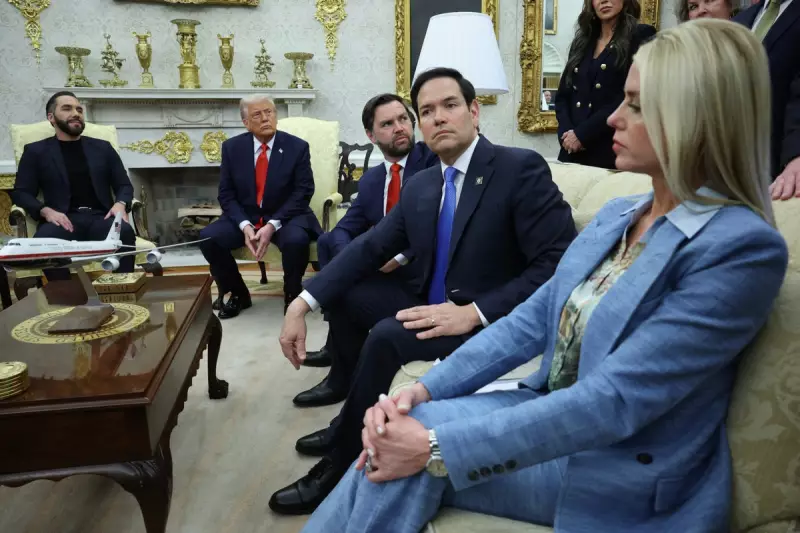
In a revelation that has sent shockwaves through Washington, US Senator Marco Rubio has been confirmed as a recipient of intelligence from CECOT, a controversial Salvadoran surveillance company with deep government connections in El Salvador.
The Secret Intelligence Pipeline
According to documents obtained by The Independent, the Florida Republican received detailed information from the firm, which operates within El Salvador's controversial state of emergency measures. The arrangement raises significant concerns about foreign actors providing intelligence to sitting US senators.
CECOT, officially registered as the Centro de Centros de Operaciones y Tácticas, has positioned itself as a key player in President Nayib Bukele's aggressive security crackdown. The company employs former military and intelligence officials and maintains close ties with Salvadoran government agencies.
Surveillance State Connections
The firm's operations are deeply intertwined with Bukele's security apparatus, which has been widely criticised for human rights violations and mass detentions. CECOT's involvement in providing intelligence to US politicians creates a troubling nexus between foreign surveillance operations and American political decision-making.
"This represents a serious breach of protocol and raises questions about foreign influence," said a national security expert who spoke on condition of anonymity. "When sitting US senators receive intelligence from foreign surveillance companies, it blurs the lines between legitimate information gathering and potential foreign interference."
Political Fallout and Ethical Concerns
The revelation comes at a sensitive time for US-El Salvador relations, with Bukele's government facing increasing scrutiny over its democratic credentials and human rights record. Rubio's acceptance of intelligence from a company embedded within this controversial regime has drawn criticism from civil liberties advocates and political opponents alike.
Legal experts note that while receiving information from foreign sources isn't inherently illegal, the nature of CECOT's operations and its government connections create potential ethical and national security concerns that warrant congressional investigation.
The incident highlights the growing challenges facing Western democracies as they navigate relationships with governments employing aggressive surveillance tactics, even when those tactics produce results in combating criminal organisations.





